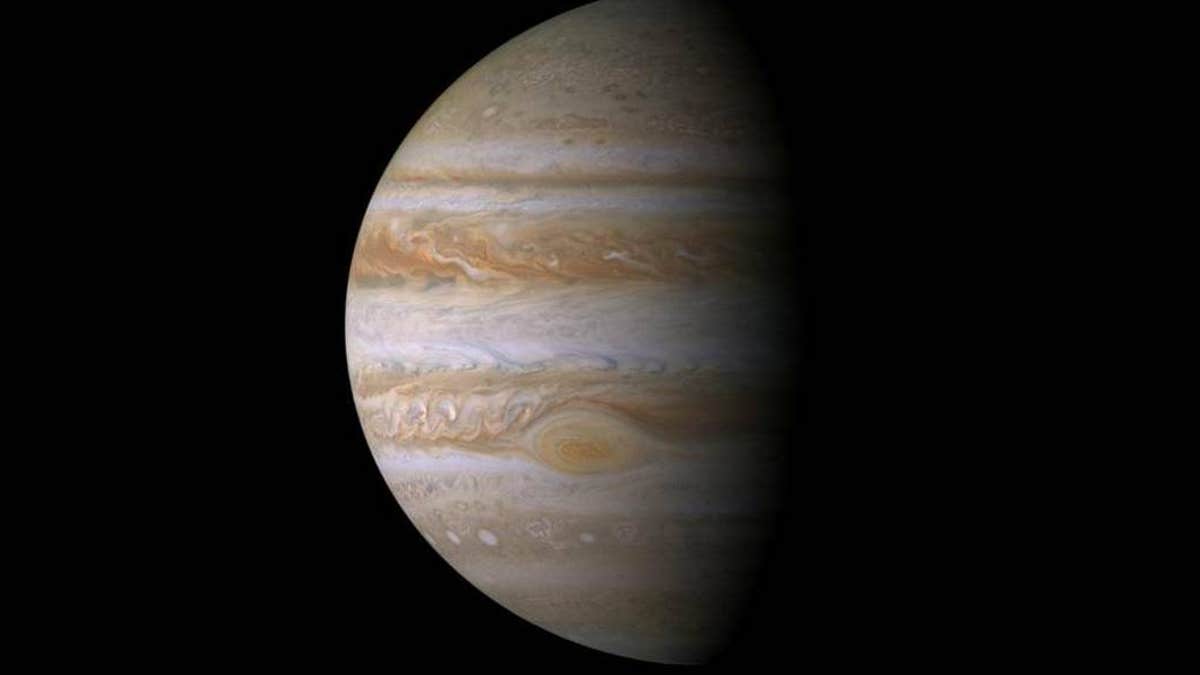
Color mosaic of Jupiter constructed from images taken by the narrow angle camera onboard NASA's Cassini spacecraft on Dec. 29, 2000. (NASA/JPL/Space Science Institute)
It seems that some planets just can’t play nicely together. Scientists at the University of Toronto have discovered that Jupiter may have ejected another planet from the Solar System 4 billion years ago.
The astrophysicists detailed their findings in a new study published in The Astrophysical Journal, noting the existence of a fifth gas planet when the Solar System formed, a theory that was first proposed in 2011. Jupiter, Saturn, Uranus and Neptune are the other gas planets.
Related: Supermoon lunar eclipse in pictures
Planet ejections occur following a close planetary encounter in which one of the objects accelerates so much that it breaks free from the massive gravitational pull of the Sun, according to the University of Toronto.
Either Jupiter or Saturn was suspected to be the culprit. “Our evidence points to Jupiter,” said Ryan Cloutier, a doctoral candidate in the University’s department of astronomy and astrophysics, and the study’s lead author, in a statement.
Related: Stunning Perseid meteor shower pictures
Experts, however, had not previously considered the impact of a planet ejection on other orbiting bodies, such as moons.
The University of Toronto scientists used computer simulations based on the current trajectories of Callisto and Iapetus, moons of Saturn and Jupiter, respectively. They also examined the possibility that the moons could maintain their orbit in the event that their host planet ejected another planet from the solar system.
Related: The best of Hubble
“Ultimately, we found that Jupiter is capable of ejecting the fifth giant planet while retaining a moon with the orbit of Callisto,” said Cloutier, in the statement. “On the other hand, it would have been very difficult for Saturn to do so because Iapetus would have been excessively unsettled, resulting in an orbit that is difficult to reconcile with its current trajectory.”
